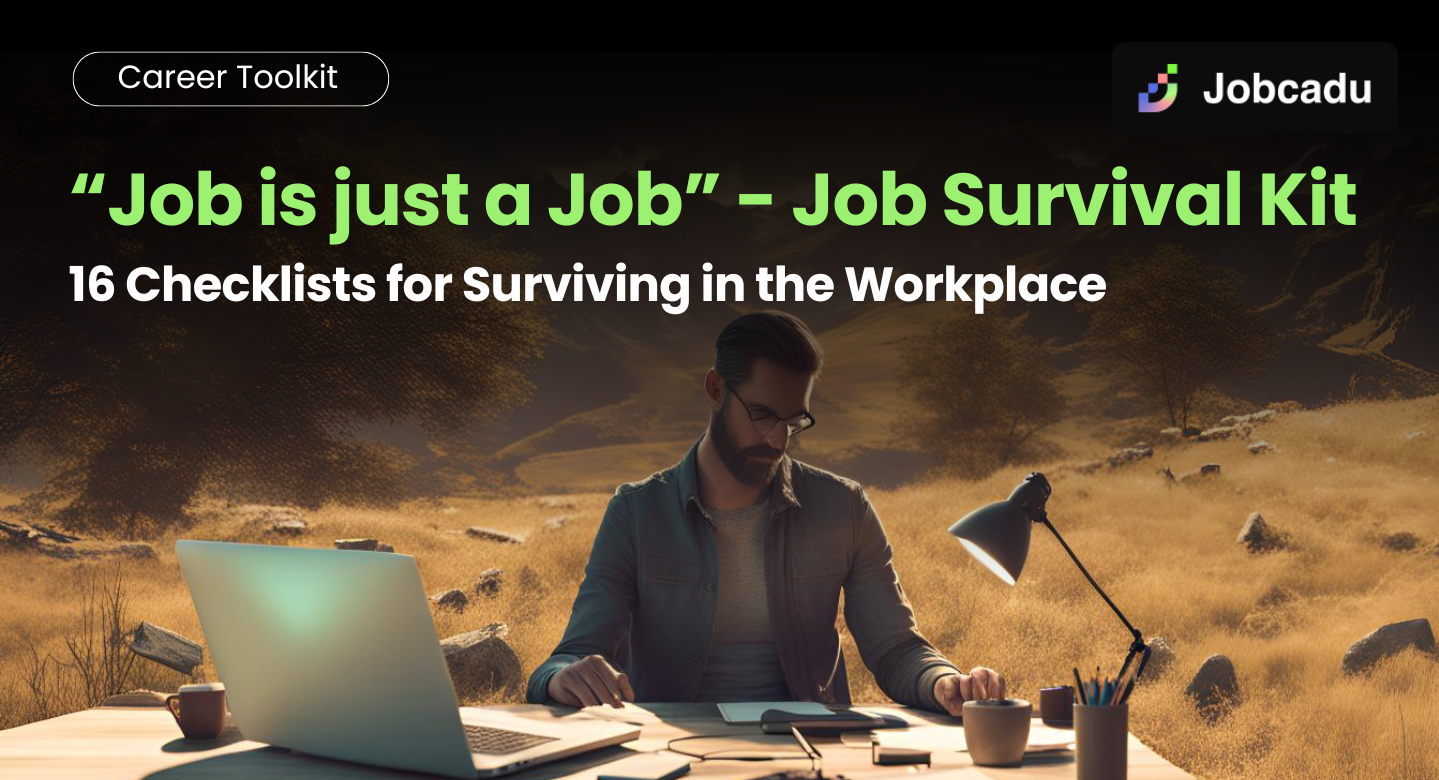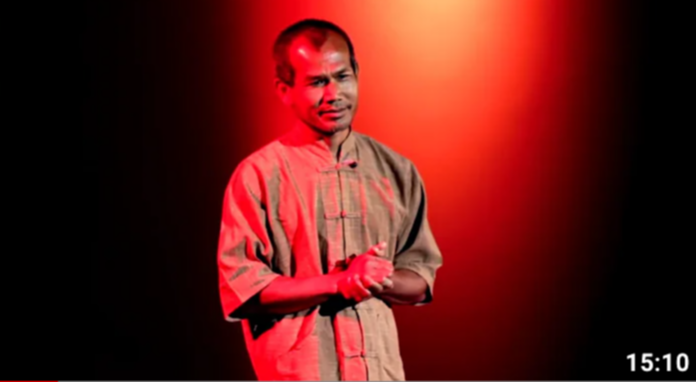ก้าวเข้าสู่ปี 2025 อย่างเป็นทางการ หลาย ๆ คนอาจจะตั้งเป้าหมายที่จะเริ่มเก็บเงินแสนให้ได้ในปีนี้ แต่ยังคงไม่รู้จะเริ่มต้นอย่างไร หรือบางทีอาจจะมีความไม่มั่นใจหรือกลัวว่าถ้าเริ่มต้นเก็บจริง ๆ แล้ว จะสามารถทำไปได้ตลอดรอดฝั่งได้ไหม ไม่อยากผิดหวังกับการตั้งเป้าหมายแล้วทำไม่ได้สักที ดังนั้นเราจึงทำซีรี่ส์รวมคลิปแนะนำเรื่องวิธีคิดและวิธีการเก็บเงินที่สามารถทำได้จริงในระยะยาวให้บรรลุ เป้าหมาย รวมทั้งทำให้เรารู้สึกภาคภูมิใจในตัวเองที่สามารถทำตามเป้าหมายให้เป็นจริงได้อีกด้วย
คุณแน็กจำแนกองค์ประกอบความรวยออกเป็น 3 อย่างคร่าว ๆ คือ ความสามารถ วินัย และ ความรู้ทางการเงิน และแบ่งวิธีการสู่หนทางความมั่งคั่งได้ 7 ข้อด้วยกัน
1. ออมก่อนใช้: สาเหตุหนึ่งที่ทำให้เราเก็บเงินไม่อยู่คือการใช้ก่อนออม เหลือเท่าไรค่อยนำไปเก็บออม แต่เรามักจะพบว่าเราใช้ไม่เคยเหลือเลย เพราะเรามักจะคำนวนค่าใช้จ่ายแบบคละกันให้หมดพอดีตลอดเดือนอยู่แล้วโดยธรรมชาติ ซ้ำร้าย หากยิ่งไม่ได้ทำบัญชีรายรับ-รายจ่ายที่ชัดเจน ก็อาจทำให้เราเสียเงินที่เรามองไม่เห็นไปกับปัจจัยฟุ่มเฟือยมากกว่าที่เราคิด สุดท้ายก็วนมาที่ไม่เหลือเก็บปลายเดือน ใช้จ่ายแบบเดือนชนเดือนจนเป็นนิสัยที่ไม่ปลอดภัยในระยะยาวในที่สุด ดังนั้น หลังจากได้รับเงินเดือน ให้แบ่งไปออมก่อน เริ่มจาก 10% ของเงินเดือน จากนั้นค่อยนำที่เหลือไปใช้ แล้วค่อย ๆ ขยายเพดานการออมไปเรื่อย ๆ ในจุดที่เรารับไหว
2. ทำบัญชีรายรับ-รายจ่ายทุกเดือน: การทำบัญชีรายรับ-รายจ่ายที่ละเอียด ทำให้เรามองเห็นได้มากขึ้นว่าแต่ละวัน แต่ละเดือนเราใช้เงินไปกี่บาท สามารถประหยัดสิ่งที่ไม่จำเป็นได้มากขึ้น มองเห็นหนที่จะมีเงินเก็บมากขึ้น และช่วยให้เรามีสติและวางแผนการใช้เงินในเดือนถัด ๆ ไปได้ดียิ่งขึ้น ป้องกันการใช้เงินด้วยอารมณ์
3. แยกค่าใช้จ่ายฟุ่มเฟือยกับค่าใช้จ่ายจำเป็น: ใช้วิธีจดกำกับไว้เลยว่าสิ่งไหนจำเป็น สิ่งไหนเป็นของฟุ่มเฟือยสำหรับเราเพื่อให้เรามาคัดออกเพื่อลดค่าใช้จ่ายในเดือนถัด ๆ ไป
4. ตั้งงบประมาณการใช้ทุกเดือน: เอาเงินเดือนมาแบ่งเป็นก้อน ๆ ให้ชัดเจน จัดแจงว่าจะใช้และห้ามใช้กับอะไร สามารถใช้ให้ไม่ถึงงบได้ แต่พยายามอย่าใช้เกินขอบเขตเด็ดขาด การทำเช่นนี้จะช่วยทำให้เรามีวินัยทางการเงิน และสามารถติดตามการเงินได้ดีมากขึ้น ป้องก้นการใช้เงินมากเกินไปหรือใช้ไปกับหมวดหมู่ใดหมวดหมู่หนึ่งมากจนเกินไป
5. เก็บภาษีฟุ่มเฟือย: ทุกครั้งที่เราใช้เงินฟุ่มเฟือย ใช้เงินด้วยกิเลส ให้เราทำโทษตัวเองด้วยการหักเงิน 10% ของราคาสิ่งนั้นไปออม วิธีนี้จะช่วยสร้างวินัยและควบคุมกิเลสได้เก่งขึ้น และมีเงินเก็บแน่นอน
6. ใช้กฎรอ 14 วัน: ก่อนจะซื้อสิ่งใด ให้รอ 14 วันเพื่อยื้อเวลาในการตัดสินใจไตร่ตรองด้วยสติ ไม่ใช่อารมณ์ชั่ววูบว่าสิ่งที่กำลังจะซื้อใช่สิ่งที่จำเป็นหรือเราอยากได้มันจริง ๆไหม
7. เปิดดูหน้าบัญชีธนาคารบ่อย ๆ: เป็นหลักจิตวิทยาอย่างหนึ่ง คือการเปิดดูย้ำ ๆ เพื่อดูตัวเลขที่เพิ่มขึ้นหรือลดลง เพราะตัวเลขเป็นหน่วยวัดแบบเป็นรูปธรรมที่ชัดเจนและส่งผลต่อจิตใจเราได้โดยตรงที่สุด. ตัวเลขในบัญชีที่เพิ่มขึ้นจะส่งผลให้เรามีความสุข แต่ตัวเลขที่ลดลงก็จะส่งผลให้เรารู้สึกเป็นทุกข์ได้ง่ายเช่นกัน จะทำให้เราจดจำความรู้สึกเหล่านี้แล้วไตร่ตรองก่อนใช้เงินมากขึ้น
เราต้องเริ่มจากการหาสาเหตุก่อนว่า อะไรเป็นเหตุที่ทำให้เราเก็บเงินไม่อยู่ซึ่งส่วนมากล้วนมาจากนิสัยเดิมที่ไม่ได้มีการทำให้ได้เห็นตัวเองเป็นลายลักษณ์อักษร หรือแบ่งชัดเจนว่าส่วนไหนเท่าไหร่ที่เราจะนำไปใช้จ่ายกับอะไรบ้าง โดยในคลิปแบ่งเงินออกเป็น 3 บัญชี:
1.บัญชีเงินเก็บ (แนะนำว่าควรเก็บก่อนใช้ จาก 10% ของเงินเดือนและสามารถสำรองครอบคลุมรายจ่ายต่อเดือนได้ 6 เดือน ถือว่าปลอดภัย)
- เงินเก็บสำรอง : ครอบคลุมค่าใช้จ่ายจำพวกอุบัติเหตุ เหตุสุดวิสัย ถ้าไม่เดือดร้อนถึงชีวิตจริง ๆ จะไม่ใช้เงินก้อนนี้เป็นอันขาด
- เงินเก็บเป้าหมายระยะสั้น : เก็บเพื่อนำไปใช้ในการบรรลุเป้าหมายระยะสั้นบางอย่างเช่น ไปเที่ยว เรียนต่อ หรือ ซื้อของบางอย่าง เป็นต้น
2.บัญชีเงินใช้ (เงินที่เหลือจากบัญชีเงินเก็บ)
- ค่าใช้จ่ายพื้นฐาน : ค่าใช้จ่ายที่จำเป็นต่อเดือน คือ ค่าอาหาร ค่าที่อยู่อาศัย หรือหนี้ประจำเดือนที่ต้องจ่ายทุกเดือน เป็นต้น
- ค่าใช้จ่ายล้างผลาญ : เป็นเงินที่เหลือจากค่าใช้จ่ายพื้นฐานอีกที สามารถใช้เงินก้อนนี้ไปกับสิ่งฟุ่มเฟือยได้ตามความเหมาะสม เป็นการตอบโจทย์ชีวิตว่า เราไม่จำเป็นต้องใช้ชีวิตจนสุดโต่งจนเกินไปจนไม่มีความสุข แต่ต้องจดบันทึกให้เป็นสัดส่วน จำกัดชัดเจน และเป็นระบบ
3.บัญชีลงทุน (สำหรับคนที่สามารถจัดการการเงินได้อย่างเป็นระบบได้ในระดับนึงแล้ว) สามารถเก็บเงินบัญชีลงทุนคู่ไปกับบัญชีเงินเก็บด้วยได้ ซึ่งบัญชีลงทุนประกอบไปด้วย
- เป้าหมายระยะกลาง : น้อยกว่า 10 ปี
- เป้าหมายระยะยาว : 10 ปีขึ้นไป
แนวคิดจากประสบการณ์การใช้ชีวิตและการจัดการกับหนี้หลักหลายล้านของ โค้ชหนุ่ม Money Coach เกี่ยวกับมุมมองในการคิดและวางแผนต่อ ‘เงินเก็บสำรองฉุกเฉิน’
- เปรียบเทียบชีวิตเหมือนการวิ่งมาราธอน: เราจะวิ่งมาราธอนได้สุดทางก็ต่อเมื่อระหว่างทางเราไม่ล้มเลย ดังนั้น เงินสำรองฉุกเฉินจึงมีความสำคัญมาก เป็นเป้าหมายแรกของการออม หรือเรียกว่า ฟูกกันล้มของชีวิต เลยก็ว่าได้ เพราะเมื่อเราล้มบนฟูก เราก็จะไม่ได้รับความเจ็บปวดมาก
- จากประสบการณ์ของโค้ชหนุ่มในการทำงานร่วม 20 ปี พบว่า ต่อให้เรามีฐานะทางการเงินดีมาแค่ไหนก็ตาม แต่ถ้าสะดุดในชีวิตแค่ครั้งเดียว จะกลับมาตั้งตัวให้มีฐานะตามเดิมได้ยากมากๆ เช่น ตกงาน 3 เดือนแบบไม่มีเงินเก็บเลย จะทำให้เกิดปัญหาหลายอย่างตามมาอีกมาก
- การที่เราได้ทำงานในบริษัทที่มีความมั่นคง ไม่ได้แปลว่าเรามั่นคง เขาสามารถเชิญเราออกได้ทุกเมื่อ
- ชีวิตเรามีโอกาสพลาดทำให้ต้องใช้เงินก้อนใหญ่ได้เสมอ เช่น การตกงาน การป่วยหรืออุบัติเหตุครั้งใหญ่ เงินเก็บสำรองจึงสำคัญมาก ๆ
- แบ่งเงินเป็นสัดส่วนให้ชัดเจน ว่าจะใช้หรือเก็บเพื่ออะไรบ้าง เพื่อเป็นภูมิคุ้มกันในการช่วยเราจัดการปัญหาทางการเงินอีกหลาย ๆ เหตุการณ์ที่อาจจะเข้ามาพร้อมกันที่เดียวในอนาคต ให้เราสามารถผ่านไปได้อย่างมีระบบและไปต่อกับชีวิตได้อย่างมีความสุข
- มาตรฐานเงินสำรองที่ควรมีเก็บคือ จำนวนเงินที่ครอบคลุมรายจ่ายรายเดือนได้ 6 เดือน
- ทรัพย์สินเก็บสำรองที่มีประสิทธิภาพ ต้องสามารถพร้อมเปลี่ยนเป็นเงินสดได้ทุกเมื่อและมูลค่าต้องไม่ผิดเพี้ยนหรือลดน้อยลงจากมูลค่าเดิมของทรัพย์สินนั้น ๆ
- ก่อนจะเริ่มการลงทุน ควรมีเงินสำรองฉุกเฉินให้ถึงเป้าหมายก่อน เพราะกว่าจะลงทุนเห็นผลก็เริ่มต้นที่หลักล้านบาทแล้ว ไม่นับกรณีที่พลาดหรือล้มเหลว
- เกษียณทางการเงิน ไม่เหมือนกับเกษียณทางการงาน
ในยุคที่เศรษฐกิจไม่เป็นใจกับคนฐานะชนชั้นกลางเท่าไหร่และค่าครองชีพที่มีแนวโน้มว่าจะสูงขึ้นเรื่อยๆ คุณขวัญจึงแนะนำเรื่องการเก็บเงินแบบมนุษย์เงินเดือนธรรมดา
ที่สามารถนำไปใช้ได้จริงจนสามารถบรรลุเป้าหมายที่หลาย ๆ คนตั้งไว้
- มีเป้าหมายออมเงินที่ชัดเจน: ทำให้เรามีแรงจูงใจ เห็นภาพใหญ่ และรู้ deadline ที่ชัดเจน มีพลังใจ ไม่ท้อง่าย เห็นวิธีเก็บเงินของตัวเองได้ชัดเจนขึ้น
- ออมก่อนใช้: เพื่อเป็นการฝึกวินัยทางการเงินที่ดี โดยตั้งตัดยอดโอนอัตโนมัติ แนะนำว่าประมาณ 10-20% ของเงินเดือน
- ทำบัญชีรายรับ-รายจ่ายที่ชัดเจน: เพื่อให้เรามองเห็นว่าเงินของเรา เข้าหรืออกไปกับอะไรบ้าง แล้วสามารถตัดค่าใช้จ่ายที่ไม่จำเป็นไหนออกได้อีกบ้าง ทำให้เราได้พิจารณาไตรตรองค่าใช้จ่ายต่อเดือนของเราได้อย่างมีสติมากขึ้น
- รู้จักการลงทุน: ค่าของเงินเรามีโอกาสลดลงได้ในทุก ๆ ปี ดังนั้นเราควรหาทรัพย์สินที่จะช่วยให้ค่าตอบแทนที่สามารถชนะเงินเฟ้อในแต่ละปีได้ เช่น ลงทุนในหุ้น กองทุน ทองคำ หรือ อสังหาริมทรัพย์ได้ แต่ก่อนจะลงทุนใด ๆ ควรศึกษาให้เข้าใจแจ่มแจ้งก่อน และประเมินความเสี่ยง และระวังมิจฉาชีพหรือการกระทำผิดกฎหมาย
- หลีกเลี่ยงการเป็นหนี้ที่มากเกินไป: หนี้เป็นอุปสรรคชั้นดีในการขัดขวางไม่ให้เราสามารถสร้างเงินเก็บเท่าที่ควร เพดานการเสียหนี้แต่ละเดือน ไม่ควรเกิน 40%ของเงินเดือนหรือรายได้ของเรา หรือค่าใช้จ่ายจำพวกค่าผ่อนต่าง ๆ ไม่ควรเกิน 20% ของเงินเดือน เพื่อไม่ให้เสี่ยงต่อการใช้เงินแบบเดือนชนเดือนมากเกินไป รวมทั้งค่าใช้จ่ายสุดวิสัยเพิ่มเติมที่อาจเกิดขึ้นได้ในระหว่างเดือน ถ้าเราไม่มีสำรองไว้เลย อาจทำให้ชีวิตลำบาก เกิดความเครียด หรือต้องไปกู้หนี้ยืมสินจนก่อเป็นหนี้เพิ่มขึ้นได้
หลาย ๆ คนมีปัญหาเรื่องการบริหารเงินอย่างไรให้รอดจนถึงปลายเดือน แต่ถึงรอดจนถึงปลายเดือน ก็ยังมีปัญหาเรื่องการไม่เหลือเก็บเป็นเงินออมเลย คุณเติ๊ด เทพลีลา จึงเสนอถึงแนวคิดการเก็บเงินด้วย หลัก 6 Jars Money Management ของคุณ T. Harv Eker
- กองรายจ่ายจำเป็น: 55% ของรายได้ ใช้กับค่าใช้จ่ายจำเป็น เช่น ค่าน้ำ ค่าไฟ ค่าเช่า ค่าอาหาร เป็นต้น
- เงินออมระยะยาว: 10% ของรายได้ เก็บยาว ๆ ในระยะ 10 ปี เพื่อใช้เป็นเงินทุนขนาดใหญ่ในอนาคต เช่น การสร้างครอบครัว ซื้อบ้าน หรือเก็บไว้ใช้เมื่อเราเจ็บป่วยหรือไม่สามารถทำงานได้เหมือนในปัจจุบัน (หรือเรียกว่า เงินสำรองฉุกเฉิน)
- ให้รางวัลตนเอง: 10% ของรายได้ เก็บไว้ใช้กับสิ่งฟุ่มเฟือยโดยเฉพาะ เหมือนเป็นเงินสำหรับให้รางวัลตัวเอง
- กองเงินเพื่อการเรียนรู้ : 10% ของรายได้ เก็บไว้เพื่อการศึกษาด้านต่าง ๆ ที่เราอยากเก่งขึ้น หรือซื้อหนังสือมาไว้อ่านเพิ่ม เพื่อพัฒนาตัวเองโดยเฉพาะ ให้เราเก่งขึ้น มีสกิลหารายได้เพิ่มขึ้น
- กองเงินแบ่งปัน: 5% ของรายได้ เป็นเงินเพื่อการบริจาค ถือเป็นการให้กลับคืนสู่สังคม เป็นการฝึกความเอื้อเฟื้อเผื่อแผ่ การให้และการแบ่งปันต่อผู้อื่น ให้เราอยู่ร่วมกันในสังคมได้ด้วยไมตรีจิตมากขึ้น
- กองการลงทุน: 10% ของรายได้ เป็นกองที่สำคัญมากเป็นกองที่เก็บไว้ใช้เพื่อลงทุนเพื่อเป้าหมายการเกษียณ แม้การลงทุนมีความเสี่ยง แต่การไม่ลงทุนอะไรเลยถือเป็นความเสี่ยงสูงสุด ดังนั้น เราควรศึกษาและมองหาการลงทุนที่ได้ผลตอบแทนที่สามารถเอาชนะเงินเฟ้อ และสามารถงอกเงยได้ เช่น อสังหาริมทรัพย์ หุ้น กองทุน หรือ สลากออกทรัพย์ เป็นต้น
รวบรวมเรื่องราวประสบการณ์ของผู้ชมทางบ้านที่อายุ 30 ขึ้นไป และประสบการณ์จริงจากโค้ชหนุ่ม The Money Coach ที่ผ่านการเจอวิกฤติการเงินทางบ้าน และสามารถผ่านมาได้ด้วยหลักคิดและการวางแผนทางการเงินที่ถูกต้อง โดยใจความสำคัญหลัก ๆ 4 ข้อ ดังนี้:
1.อย่ารีบเป็นหนี้: หากจะตัดสินใจใช้สินเชื่อ ต้องมั่นใจว่าจะสามารถรับผิดชอบหนี้ก้อนนั้นได้เต็มจำนวนก่อนอยู่แล้ว แบ่งย่อยเป็นสองแบบ แบบแรกคือเพื่อการศึกษา เช่น กู้กยศ. หนี้เช่นนี้สามารถเข้าใจได้โดยนัย ถือเป็นหนี้การลงทุนเพื่อการศึกษาต่อยอดชีวิตในระยะยาวที่เลี่ยงไม่ได้. จากบางครอบครัวที่อาจไม่ได้มีรายได้มาก และแบบที่สอง คือหนี้บัตรเครดิต, บัตรกดเงินสด หรือสินเชื่อบุคคล ไม่ใช่ว่าห้ามเปิดบัตรเหล่านี้ เพียงแต่ต้องรู้จักใช้อย่างมีสติ อย่ามีหนี้ค้างเยอะเกินไป. เพราะชีวิตเราไม่เคยเบาลง ยิ่งอายุมากขึ้น รายจ่ายในชีวิตย่อมมากขึ้นตาม เพราะอายุ 30 ขึ้นไป หลายคนอาจต้องใช้เงินในการสร้างครอบครัว ซื้อบ้าน หรือเรียนต่อ ทำให้ช่วง 30. อาจมีเรื่องต้องใช้สินเชื่ออยู่แล้ว
2.ออมเงิน: ถ้าชีวิตไม่ได้มีภาระต้องดูแล ควรเริ่มต้นออมเงินให้ไวที่สุด เช่น เก็บออม 10% ของรายได้ หรือลงกองทุนต่าง ๆ และ ’ความสำเร็จด้านการเงิน สามารถสร้างอัตราเร่งกันได้ ถ้าภาระรายจ่ายในชีวิตมากขึ้น ย่อมต้องมีความมุมานะพยายามหาเงินมากขึ้นเป็นธรรมดา เชื่อมั่นในตัวเองเข้าไว้ และริเริ่มเรียนรู้การลงทุน
3.แปลงเงินเก็บออมให้เป็นทรัพย์สิน: ทรัพย์สินสะสม ถือเป็นความมั่งคั่งสุทธิชั้นดีในระยะยาว เพราะการที่มีแค่ตัวเงินค้างไว้ในบัญชี ในอนาคตข้างหน้าจำนวนเงินเหล่านี้มีมูลค่าตรงตัว และมูลค่าอาจลดลงได้จากความผันผวนของเศรษฐกิจ เงินสดเปล่าๆไม่สามารถเก็งกำไรให้มีมูลค่าเพิ่มได้เท่ากับการแปลงเป็นทรัพย์สินสะสมให้เก็บไว้เพื่อเพิ่มมูลค่าให้สูงขึ้นได้ในอนาคตระยะยาว เช่น กิงทุนรวม หุ้น ทองคำ ที่ดิน สลากออมทรัพย์ เป็นต้น และพยายามหาลู่ทางสร้างเงินแล้วให้เงินทำงานแทนเราในอนาคต ในวันที่เราไม่มีแรงเท่าวัยหนุ่มสาวช่วงอายุ 20 แล้ว
4.โฟกัสที่ความมั่นคงในระยะยาว: ความมั่งคั่งถือเป็นนามธรรมรูปแบบหนึ่งที่ไม่มีหน่วยวัดที่แน่นอนขึ้นอยู่กับปัจเจกและความปรารถนารายบุคคล เพราะฉะนั้น เราจึงวัดกันด้วยความมั่นคง เช่น จากสภาวะวิกฤตการณ์โควิด 19 ที่ผ่านมา เห็นได้ว่ามีหลายครัวเรือนได้รับผลกระทบอย่างหนักในช่วงที่ผ่านมา มากน้อยแตกต่างกันไปตามความมั่นคงของแต่ละบ้าน หรือเจ้าของกิจการบางราย ที่เมื่อผ่านช่วงโควิดไป กลับผันกลายเป็นบุคคลล้มละลาย เหตุการณ์ดังกล่าวสามารถวัดความมั่นคงในชีวิตได้อย่างเป็นรูปธรรม ผู้ที่มีความมั่นคงทางการเงินมาก จะแสดงถึงการไม่ขึ้นต่อวิกฤติต่าง ๆ ที่ผ่านเข้ามาในชีวิต หรือแม้ว่ากระทบ ก็จะได้รับผลกระทบเพียงเล็กน้อย มองหาและเตรียมตัวทำประกันไว้
เพราะเราไม่อาจรู้ได้ว่าอุบัติเหตุจะเกิดขึ้นในชีวิตเราเมื่อไร และควรมีเงินสำรองล่วงหน้า 6 เดือน อาจแบ่งออมจากรายได้เป็นย่อย ๆ 2 กระเป๋า คือ เงินสำรองเลี้ยงชีพ และ เงินสำรองฉุกเฉิน และกำหนดเป้าหมายการเก็บเงินจากเป้าหมายชีวิตและการคิดเผื่อวิกฤติ เลือกคู่ชีวิตที่มีเป้าหมายทางการเงินเหมือนกัน และสุดท้าย ใช้ชีวิต ผจญภัยให้เต็มที่ในวัย 20 วัยที่เรายังสามารถผิดพลาดได้ เพราะเมื่อเราอายุ 40 โลกจะไม่อนุญาตให้เราผิดพลาดอีกแล้ว และอย่าเปรียบเทียบตัวเองกับคนอื่น อย่าลืมอนุญาตให้ตัวเองมีความสุข
บทความนี้เป็นเพิ่งส่วนหนึ่งของการแนะนำวิธีเก็บเงินอย่างไรให้มีประสิทธิภาพในเบื้องต้น อาจต้องมีการศึกษาจากแหล่งอื่นเพิ่มเติมประกอบการตัดสินใจบนพื้นฐานการดำเนินชีวิตที่แตกต่างกันส่วนบุคคล หรือหากสนใจขอมูลด้านการเงินหรืออาชีพเพิ่มเติม สามารถเข้าไปศึกษาเพิ่มเติมได้ที่ Education Portal











